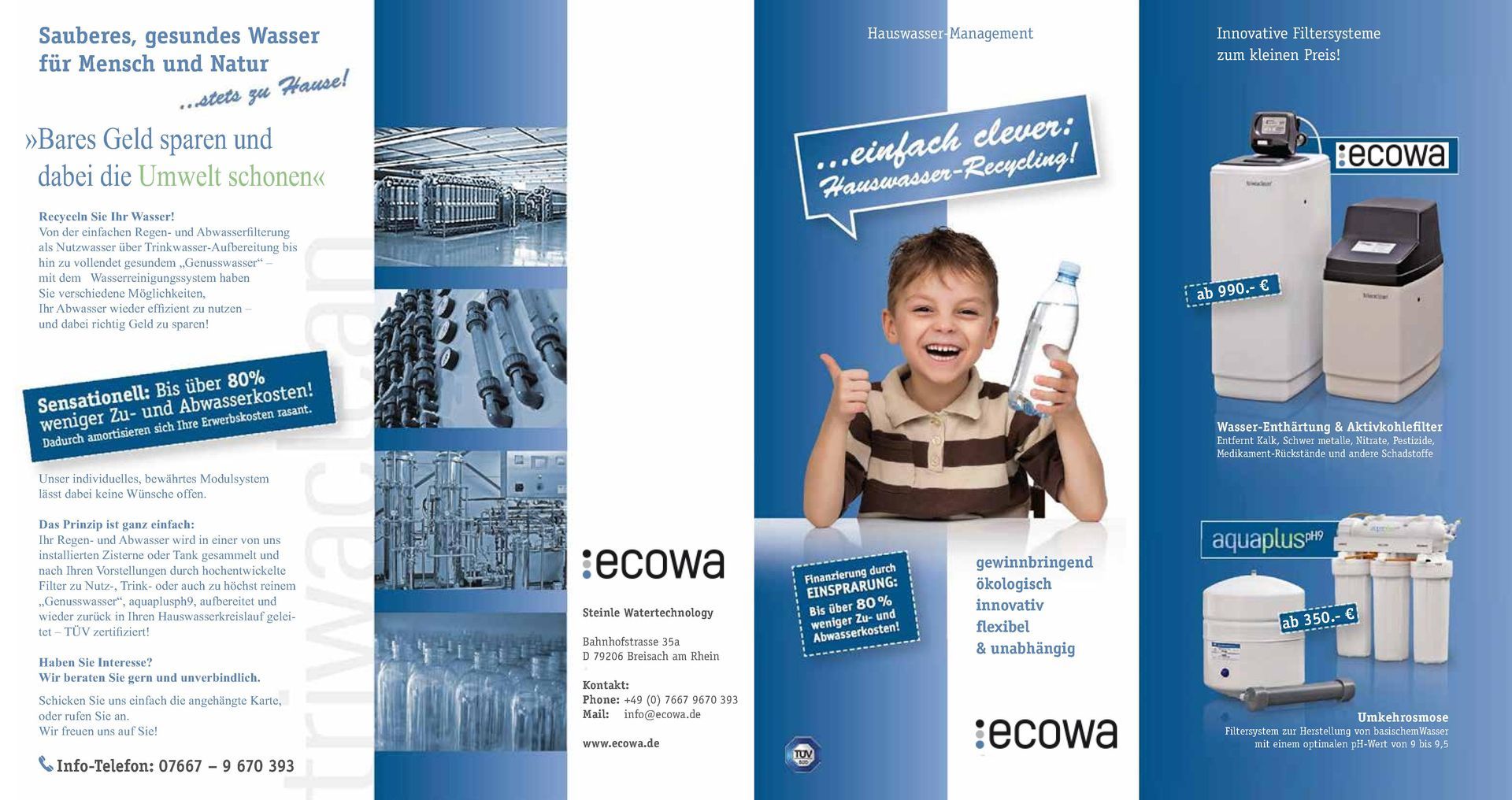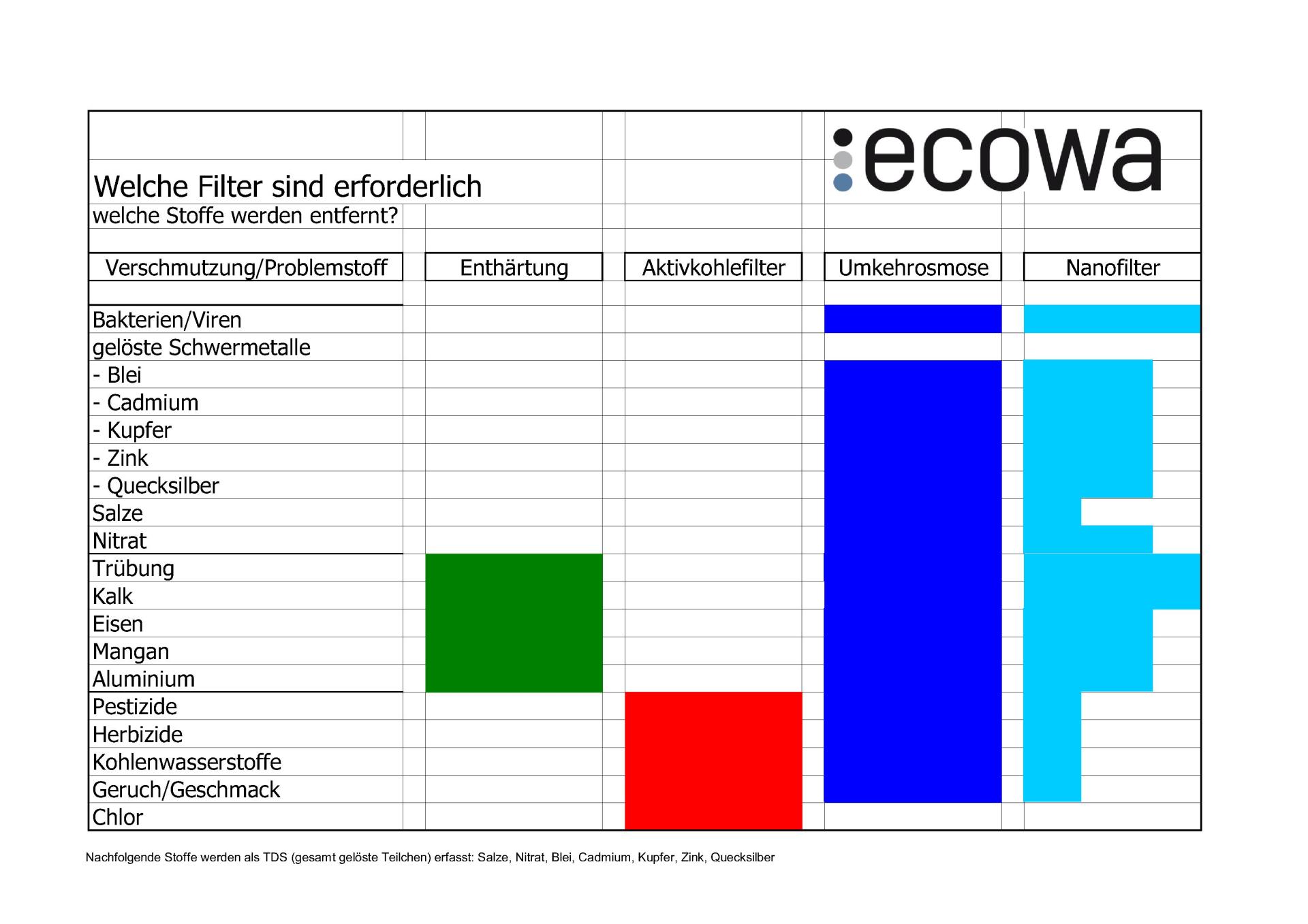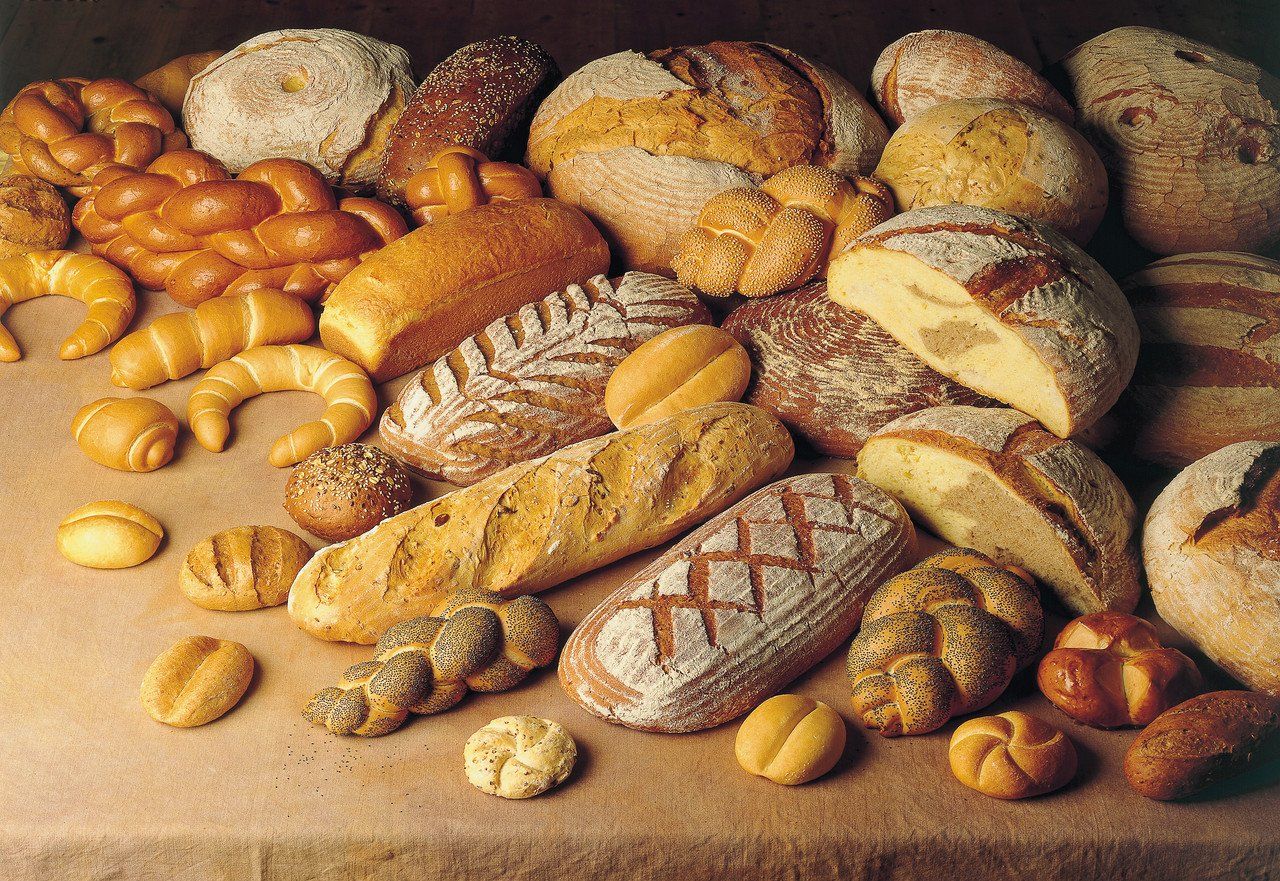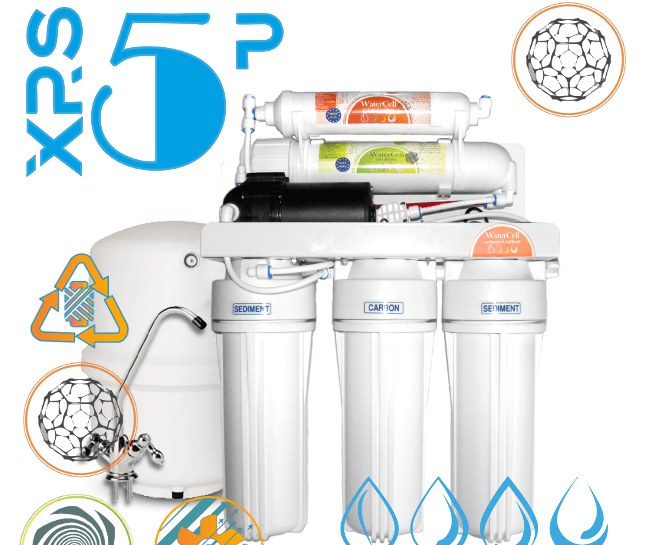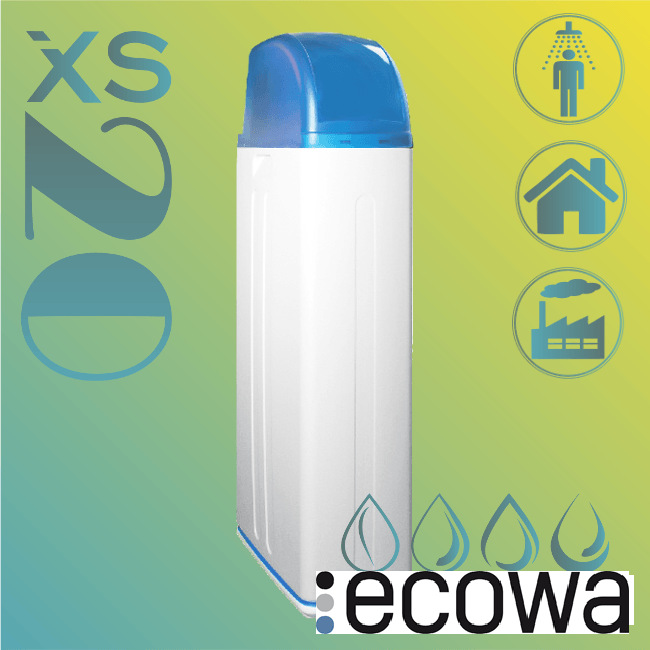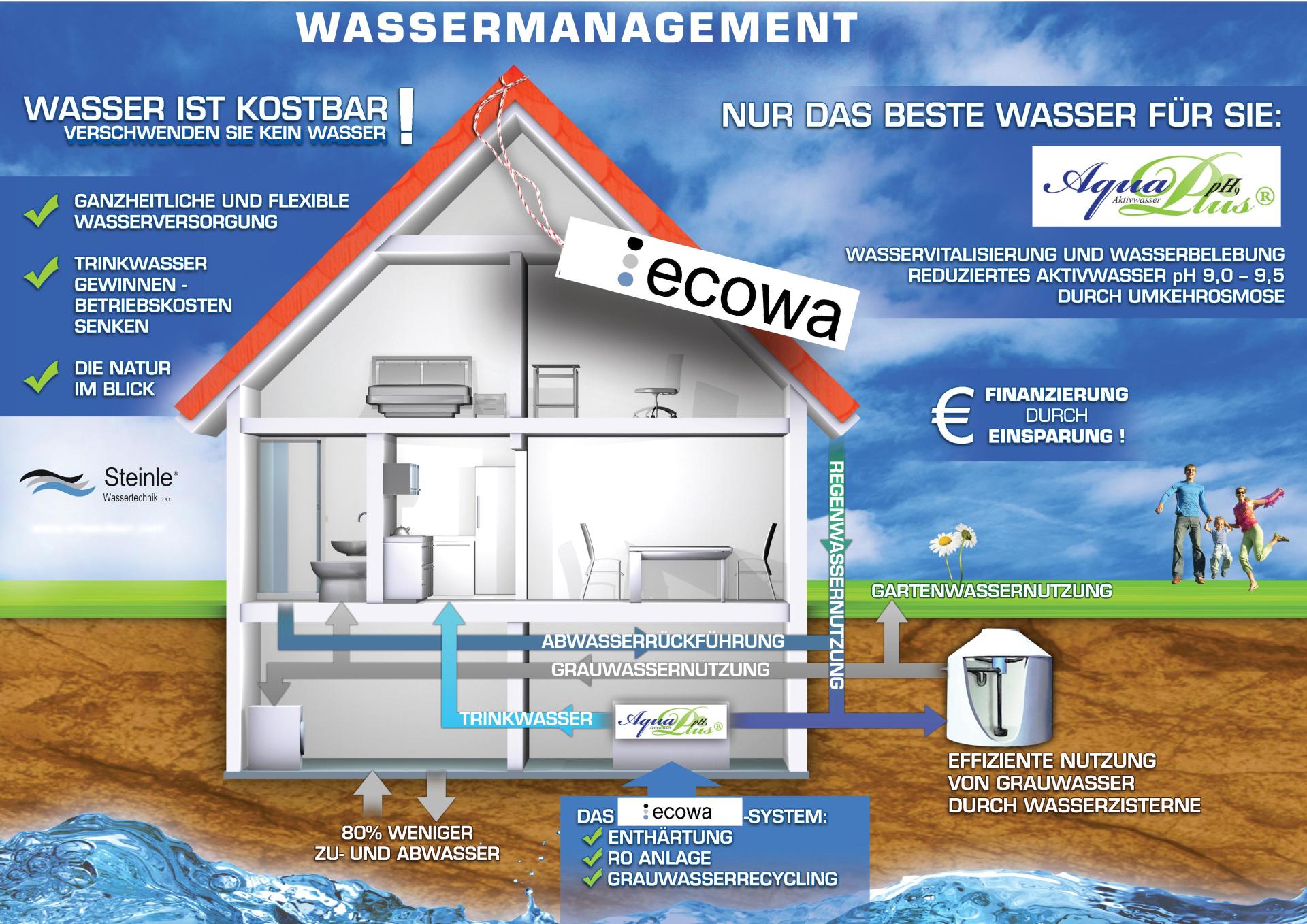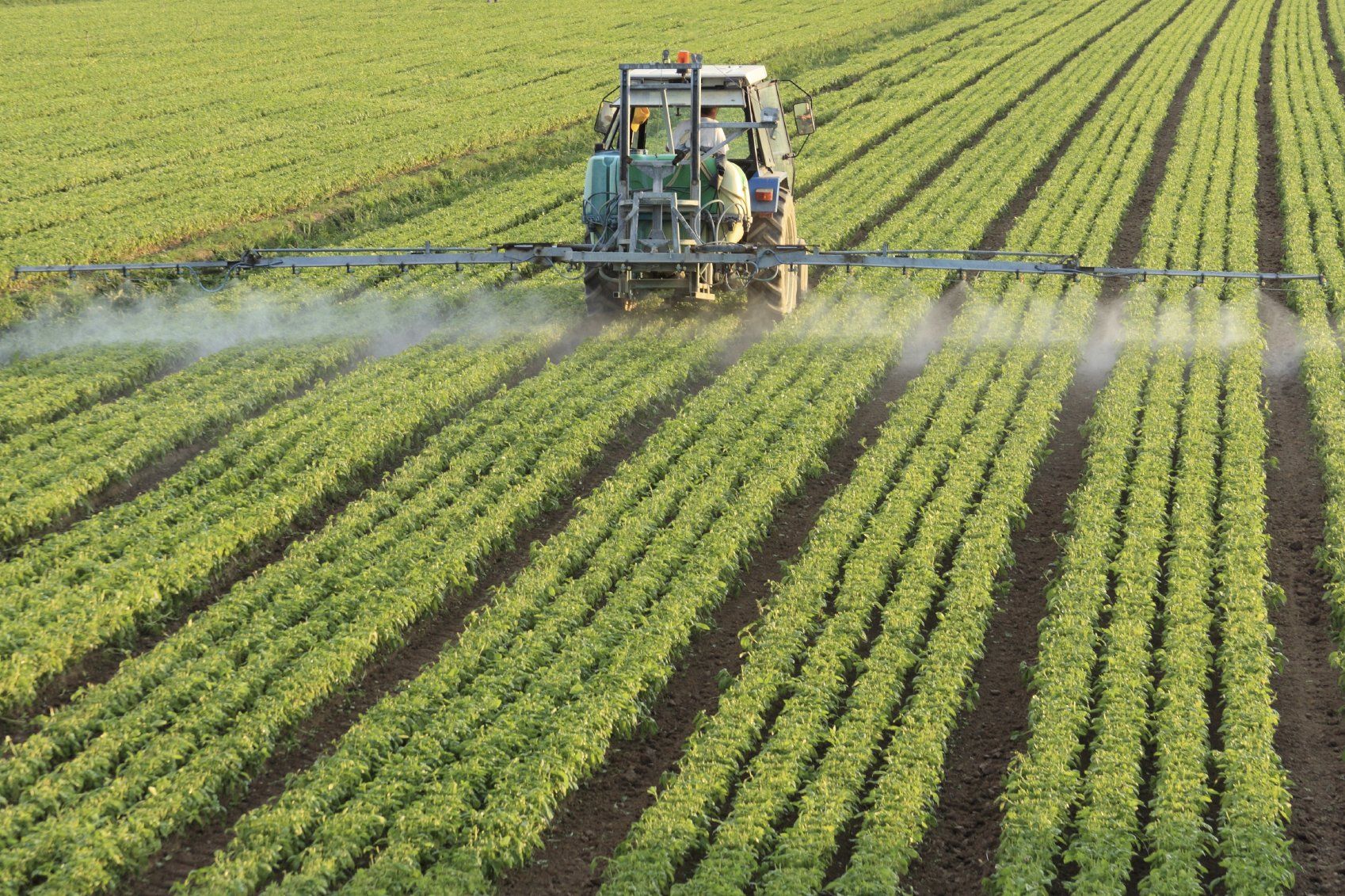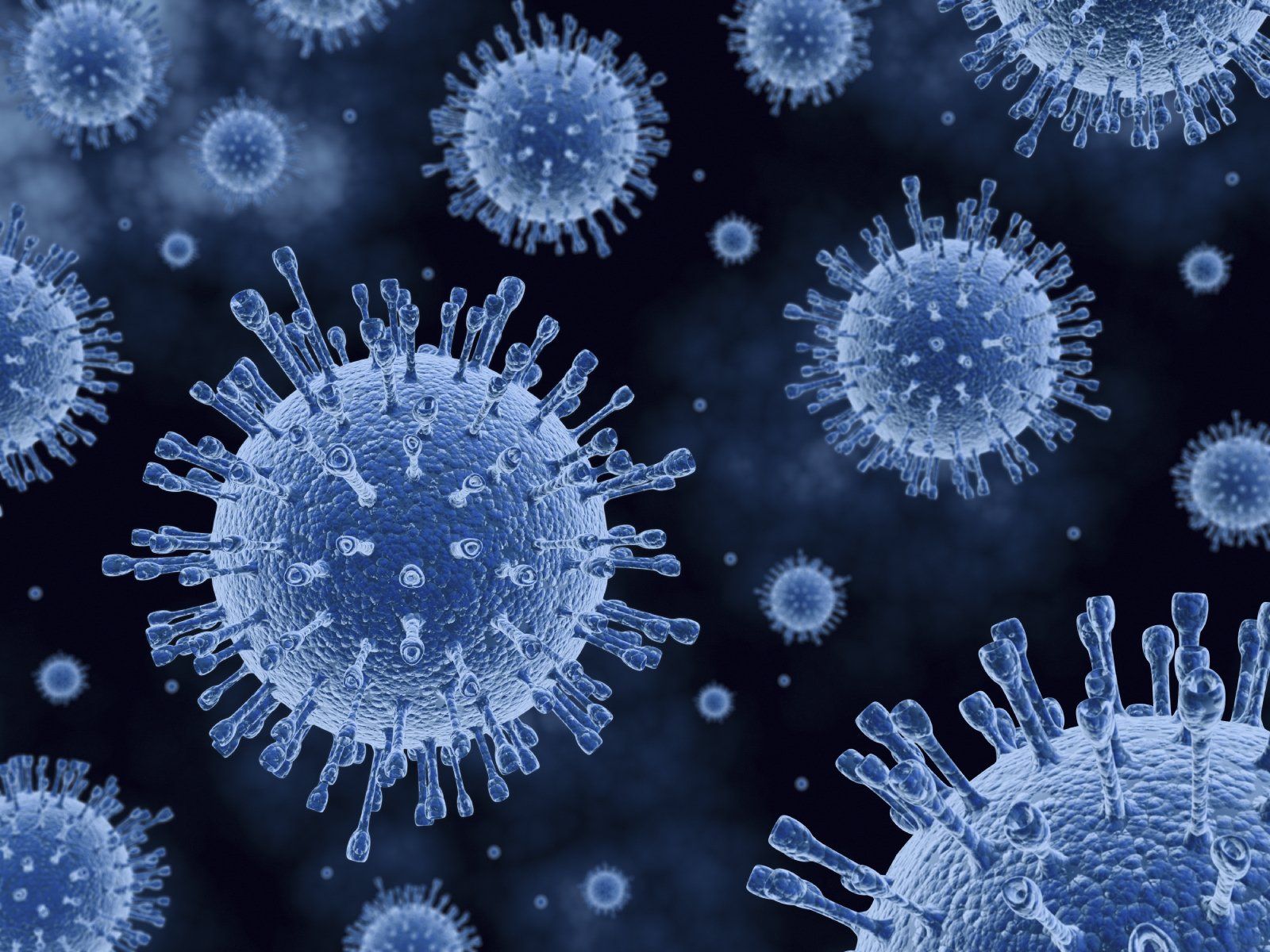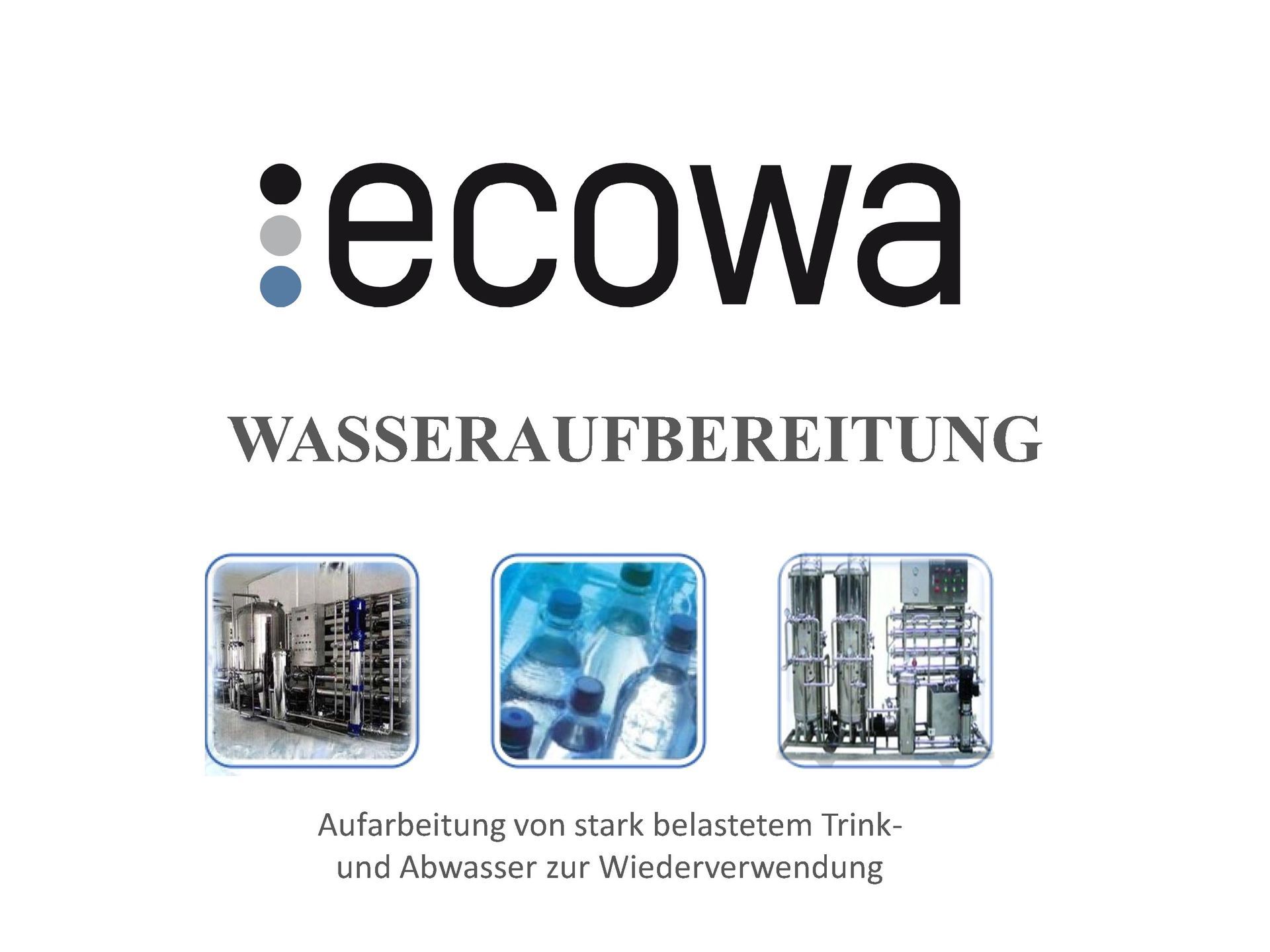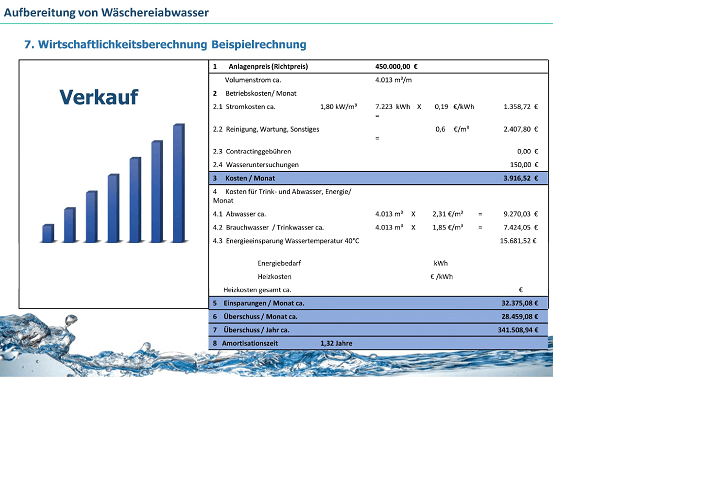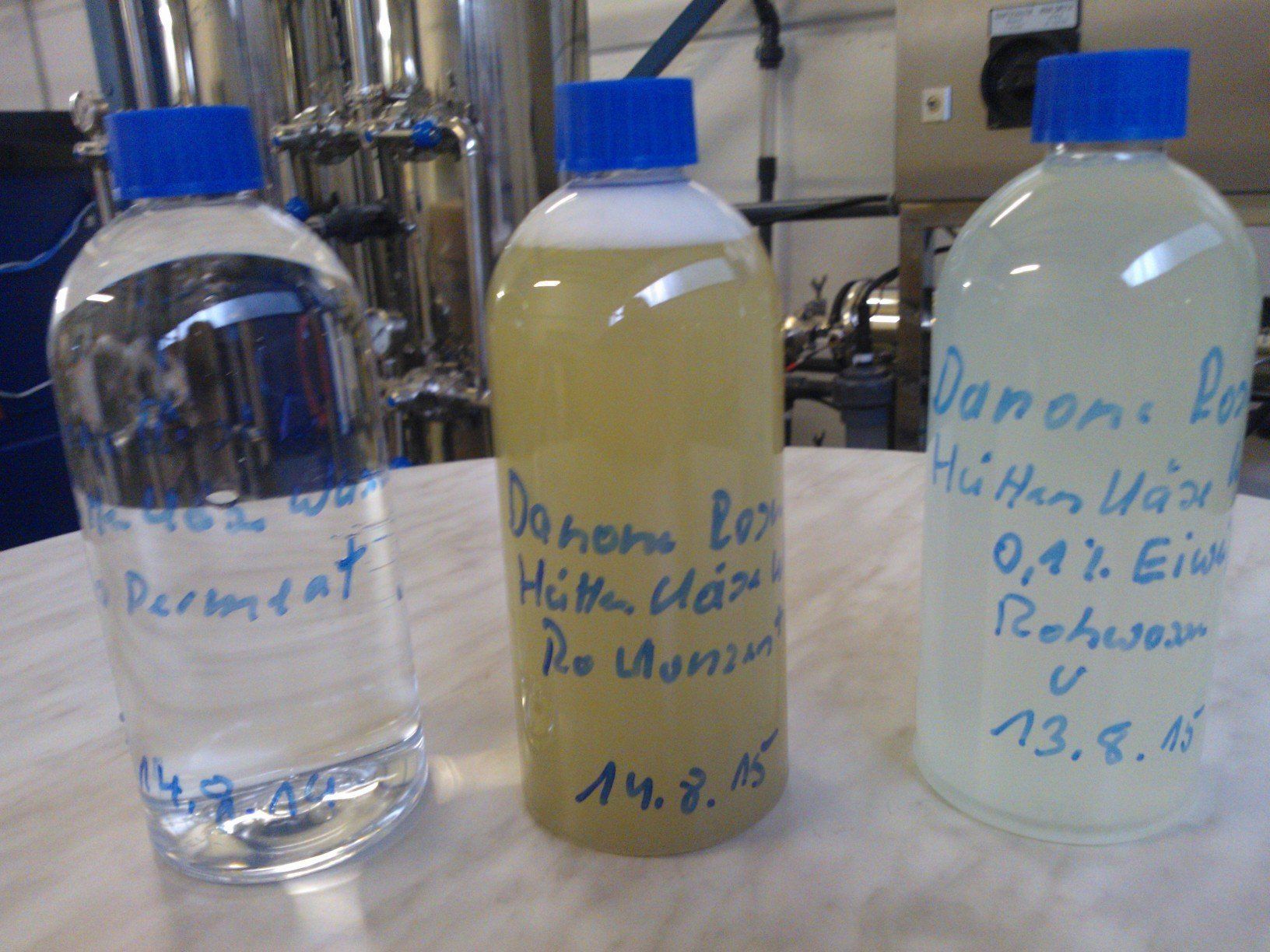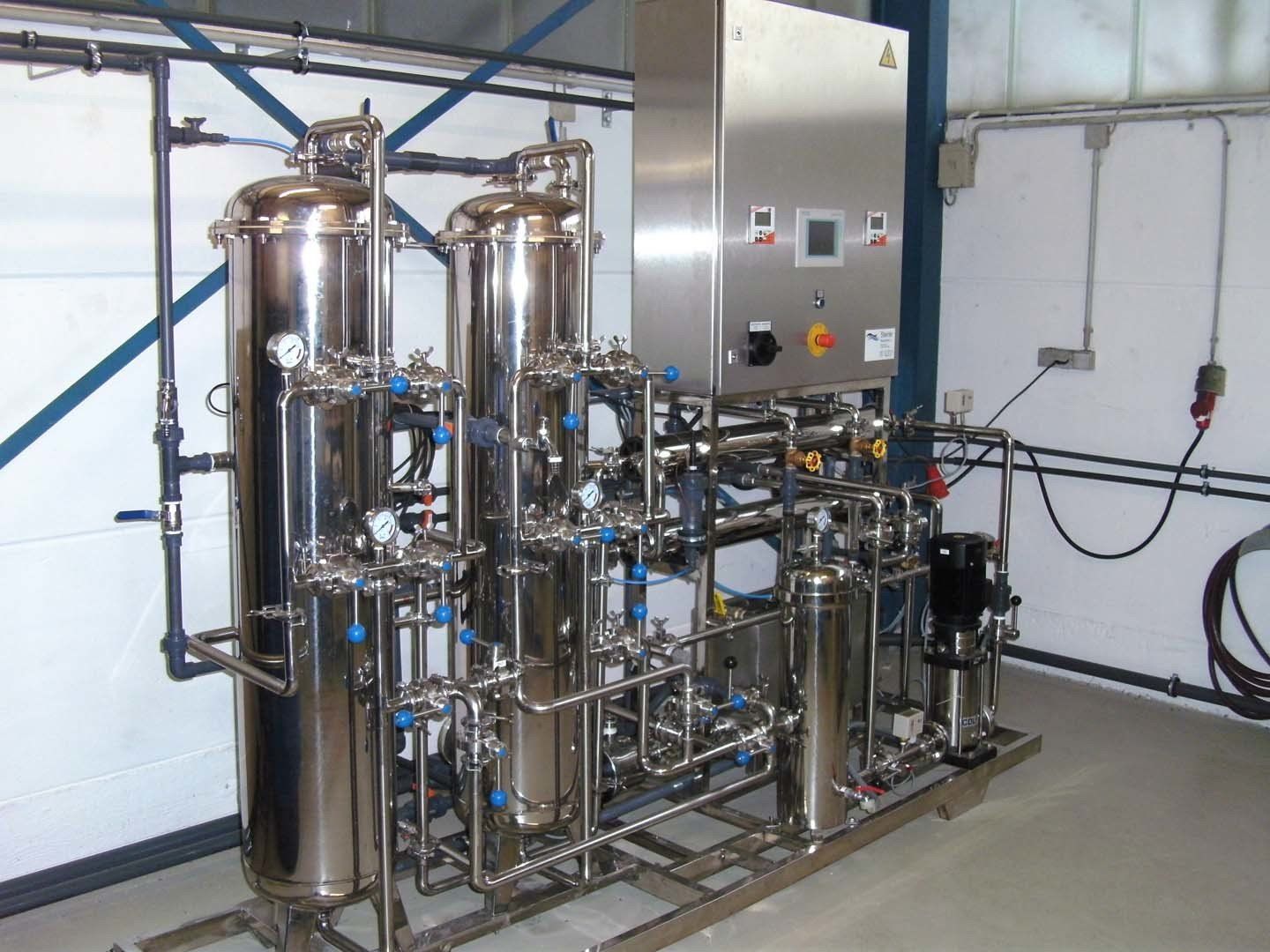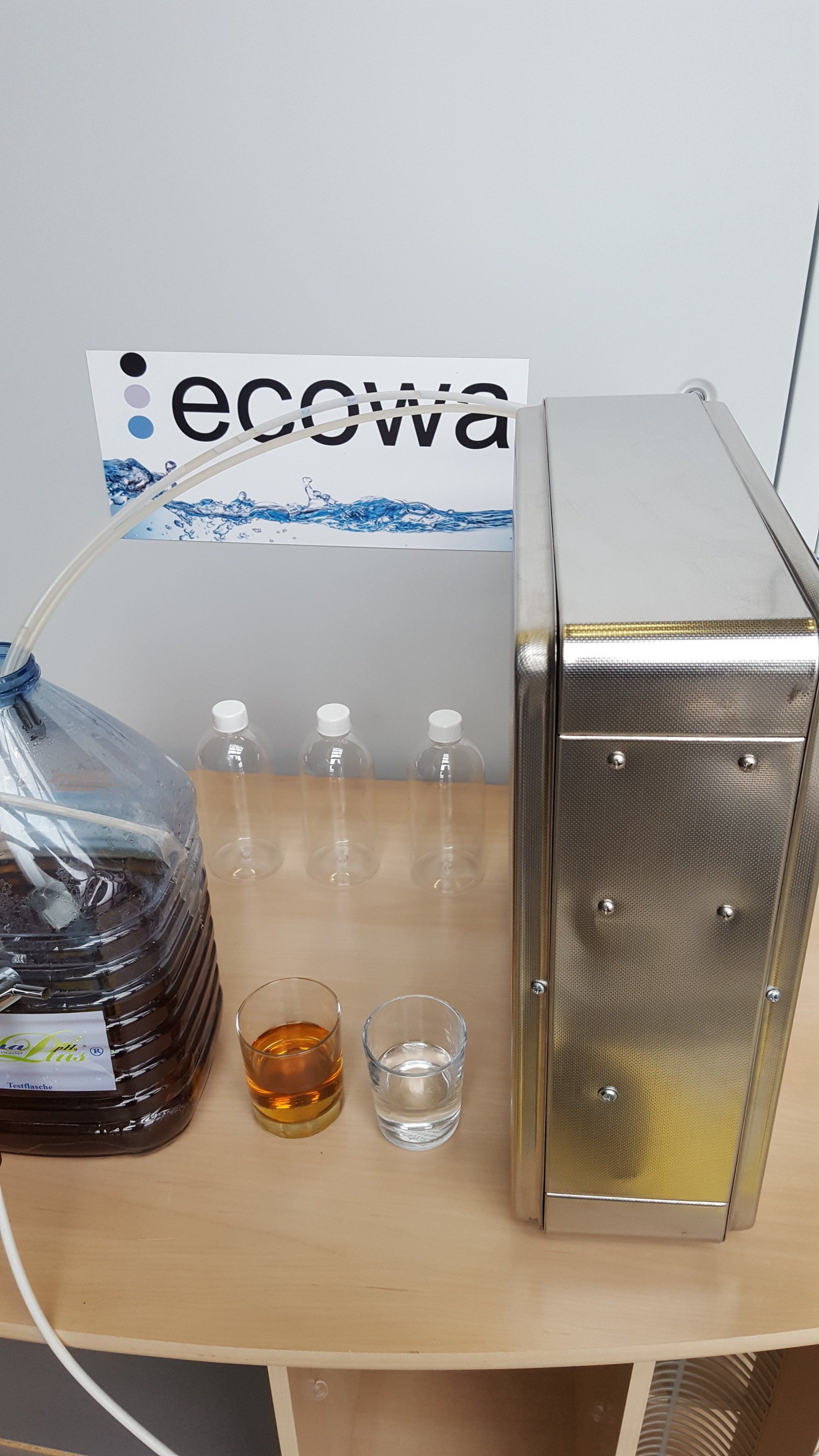Who is ecowa?
ecowa is a brand of Steinle Watertechnology. We market our innovative products under this brand. Thomas Steinle has over 30 years of experience in pilot projects, engineering, research and development, and plant construction for public swimming pools, as well as wastewater and water treatment systems for wellness hotels with spas, thermal baths, and the industrial sector.
We offer engineering and service activities for thermal baths
Wellness hotels with spa, as well as
Sales, installation and service of
Water softening and reverse osmosis system ecowa
for private - wellness hotels - spas - industry
Removal of environmental toxins from drinking water, more information in the BLOG under Reverse Osmosis
Backwash water treatment DIN 19645
Reuse of warm backwash water
Water softening and reverse osmosis, ecowa
Private - Wellness hotels - Spas - Industry
Removal of PFAS with reverse osmosis, more information in the BLOG under Reverse Osmosis
Private and outdoor pools, wellness hotels with spa and thermal baths DIN 19643
Behncke (Price list)
Swimming pool - Wellness - Drinking and waste water
Partner of WDT (Werner Dosing Technology)
Swimming pool chemical delivery
Dr. Nüsken
We support public and hotel pools in water hygiene
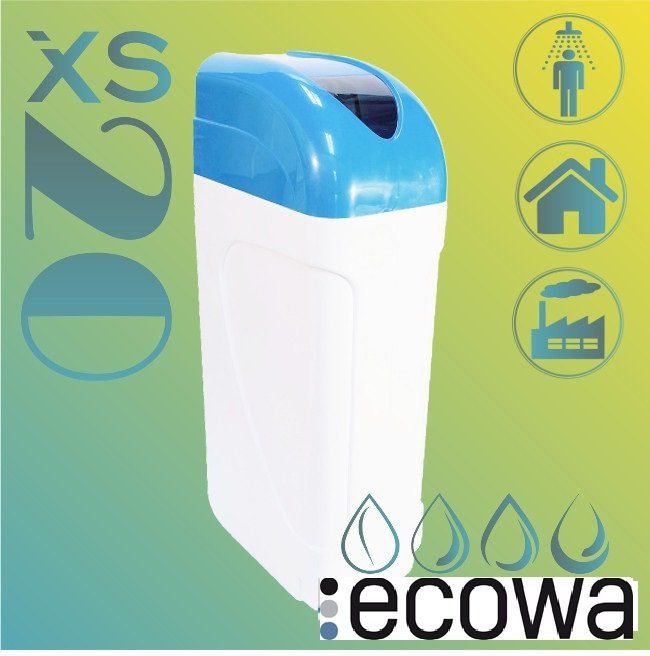
Water softening
We offer water softening systems and accessories:
We carry out pipeline installations.
Advantages of water softening:
Reduces the limescale build-up on machines and appliances (dishwasher, washing machine, coffee machine, kettle, etc.) Reduces the consumption of detergents and dishwashing liquids,
Improves the taste and appearance of many foods and drinks.
Softened water is also ideal for use in reverse osmosis systems to remove environmental toxins such as PFAS, as it significantly extends the lifespan of the membranes.
Softened water is also better for irrigation, saving costs.








